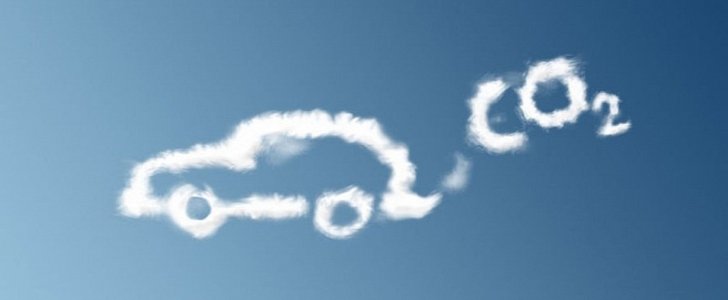The struggle to improve air quality in Europe took a blow last year, it would seem. Despite harsher regulations when it comes to car emissions, and the increase in sales for alternative-powered cars, Europeans breathed in 2017 the most CO2-polluted air in a decade.
The rise in CO2 levels last year is not extremely big, only 0.3 grams/km, but it is a result of the purchase habits the Europeans have developed in the last ten years. JATO Dynamics, the organization behind this study, says the increase in largely to be blamed on the increase in sales for SUVs and gasoline-powered vehicles.
At the beginning of the year, JATO revealed that the drop in interest for diesel vehicles worked wonders for gasoline ones. On European roads, there were last year 760,000 units more gasoline cars than in 2016, or an increase of 10,9 percent.
As for SUVs, they saw a record spike: 4.56 million registrations in 2017, 19.5% higher than in 2016.
In 2017, diesel cars registered in the market had a CO2 emissions average of 117.9g/km, compared to petrol cars, which had an average of 123.4g/km.
JATO says the correlation between the decline in demand for diesel cars and the increase in CO2 emissions is most visible in Germany, the UK, France, and Spain. Here, the highest decline in diesel demand was registered last year, but also the biggest spikes in CO2 emissions.
As for cars, the cleanest brand on the European market is Toyota, thanks to its hybrid models, which made its emissions average decrease by 2.7 g/km to 101.2g/km. The runner-up is Peugeot, which sold more SUVs and consequently registered an increase in average emissions by 2.7g/km, to 104.5g/km.
As for the methodology used for the report, JATO says the “average CO2 emissions are calculated by multiplying the CO2 emissions rating of each car version by the volumes achieved by that version in a given timescale, totaling this product for all versions, then dividing by the total volume of all versions.”
At the beginning of the year, JATO revealed that the drop in interest for diesel vehicles worked wonders for gasoline ones. On European roads, there were last year 760,000 units more gasoline cars than in 2016, or an increase of 10,9 percent.
As for SUVs, they saw a record spike: 4.56 million registrations in 2017, 19.5% higher than in 2016.
In 2017, diesel cars registered in the market had a CO2 emissions average of 117.9g/km, compared to petrol cars, which had an average of 123.4g/km.
JATO says the correlation between the decline in demand for diesel cars and the increase in CO2 emissions is most visible in Germany, the UK, France, and Spain. Here, the highest decline in diesel demand was registered last year, but also the biggest spikes in CO2 emissions.
As for cars, the cleanest brand on the European market is Toyota, thanks to its hybrid models, which made its emissions average decrease by 2.7 g/km to 101.2g/km. The runner-up is Peugeot, which sold more SUVs and consequently registered an increase in average emissions by 2.7g/km, to 104.5g/km.
As for the methodology used for the report, JATO says the “average CO2 emissions are calculated by multiplying the CO2 emissions rating of each car version by the volumes achieved by that version in a given timescale, totaling this product for all versions, then dividing by the total volume of all versions.”






















